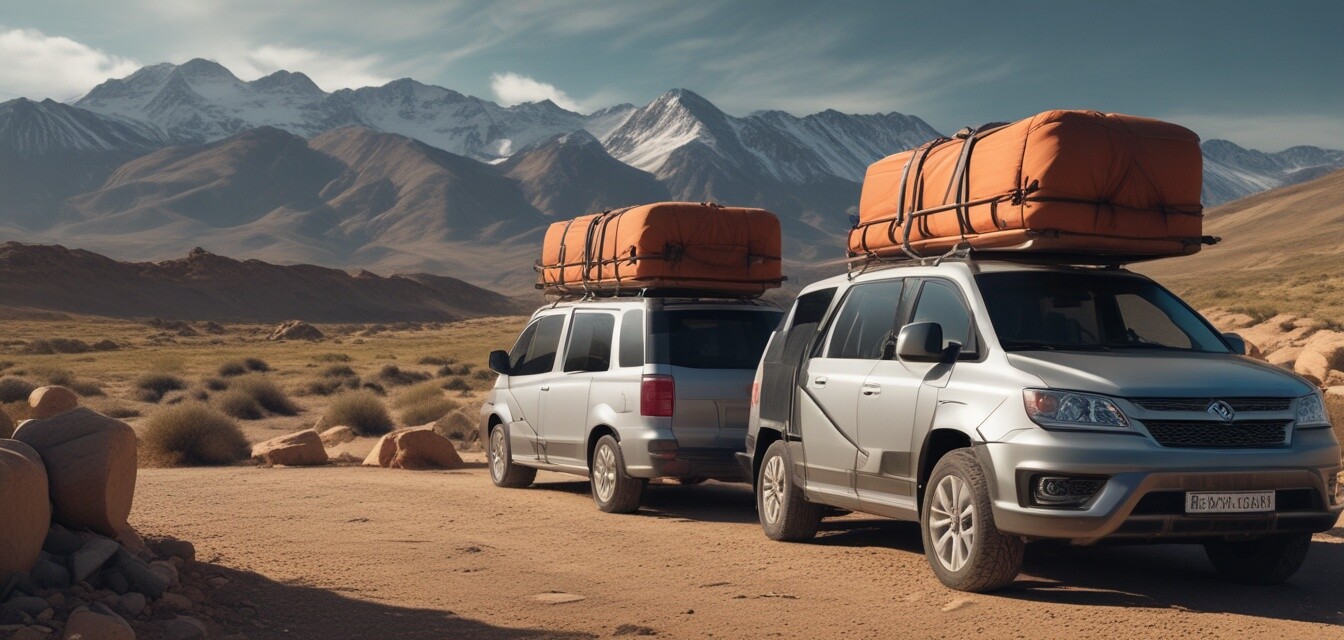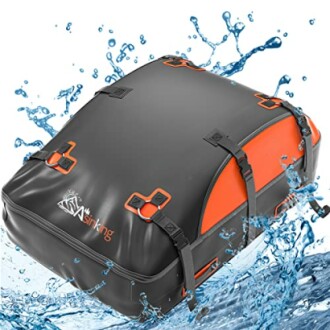
What to look for in a cargo carrier
Key Takeaways
- Choosing the right cargo carrier depends on your vehicle type and storage needs.
- Key features include waterproof capability, installation ease, and durability.
- Consider how much weight and volume you need to transport.
- Different designs cater to varying activities, from road trips to hikes.
Choosing a suitable cargo carrier is essential for anyone needing extra storage space for their vehicle, whether you're heading out on a road trip, moving equipment, or planning outdoor adventures. In this guide, we will explore the key features that you should consider when selecting a cargo carrier, ensuring it meets your needs for transportation and storage.
Types of cargo carriers
Before diving into specific features, it's important to understand the different types of cargo carriers available, as each serves unique purposes:
- Rooftop cargo carriers: Ideal for long trips, providing extra space without compromising interior room.
- Hitch-mounted carriers: Great for carrying large items like bikes or heavy loads, attaching directly to your vehicle's hitch.
- Trunk-mounted carriers: Suitable for smaller vehicles and temporary use, easy to install and remove.
Key features to consider
1. Capacity
When choosing a cargo carrier, consider how much cargo you'll be transporting:
- Weight capacity: Ensure the carrier can handle the weight of your gear.
- Volume capacity: Look for options that maximize storage without reducing vehicle safety.
2. Waterproof capability
A waterproof cargo carrier protects your gear from rain and snow. The Asinking Car Rooftop Cargo Carrier Bag is an excellent choice. Its features include:
Asinking Car Rooftop Cargo Carrier Bag
A fully upgraded design that is 100% waterproof, easy to install, and protects your cargo from harsh elements.
Learn More3. Installation
Look for cargo carriers that offer easy installation:
- Quick release systems
- Easy attachments to racks or hitches
- Clear installation guides provided
4. Material and durability
The materials used in the cargo carrier's construction significantly affect its durability. Common materials include:
| Material | Durability | Common Use |
|---|---|---|
| Polyester | Water resistant, affordable | Light to moderate loads |
| Polyvinyl Chloride (PVC) | Highly durable and waterproof | Heavy and sensitive equipment |
| Aluminum | Very durable, lightweight | Hitch carriers with high load capacity |
5. Security features
No one wants to worry about theft during their travels. Look for cargo carriers with:
- Lockable designs
- Security straps
- Anti-theft accessibility enhancements
6. Compatibility with your vehicle
Make sure the cargo carrier you choose is compatible with your vehicle's make and model:
- Check weight limits and specifications provided by your vehicle's manufacturer.
- Verify if additional accessories are required for installation.
Consider your usage
Your intended usage will influence the type of cargo carrier you need. Here are some considerations:
- Will you be carrying sports equipment or large travel bags?
- Do you need easy access to your cargo while on the road?
- How often will you be using it?
Conclusion
Choosing the right cargo carrier involves understanding your needs, your vehicle's compatibility, and the carrier's key features. Whether you're looking for something durable, waterproof, or easy to install, there are plenty of options available. By keeping these details in mind, you can confidently select the cargo carrier that will best suit your transportation and storage requirements.
Tips for buying a cargo carrier
- Review customer feedback to gauge real-world performance.
- Compare your options through our Top Picks guide for the best recommendations.
- Consider additional accessories to ease installation and enhance usability.
- Stay informed on gear recommendations through our Truck Racks resource.

